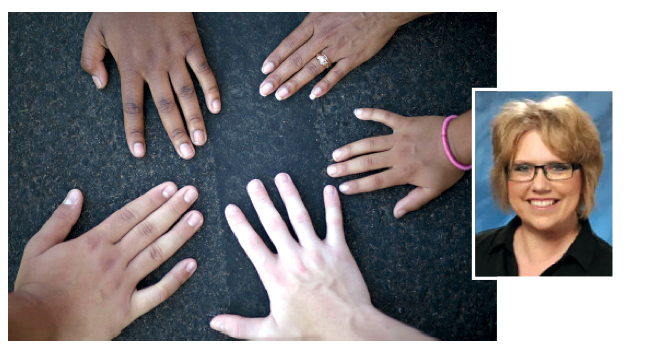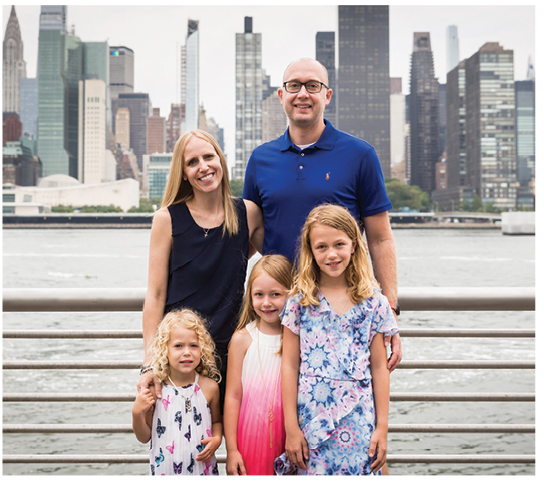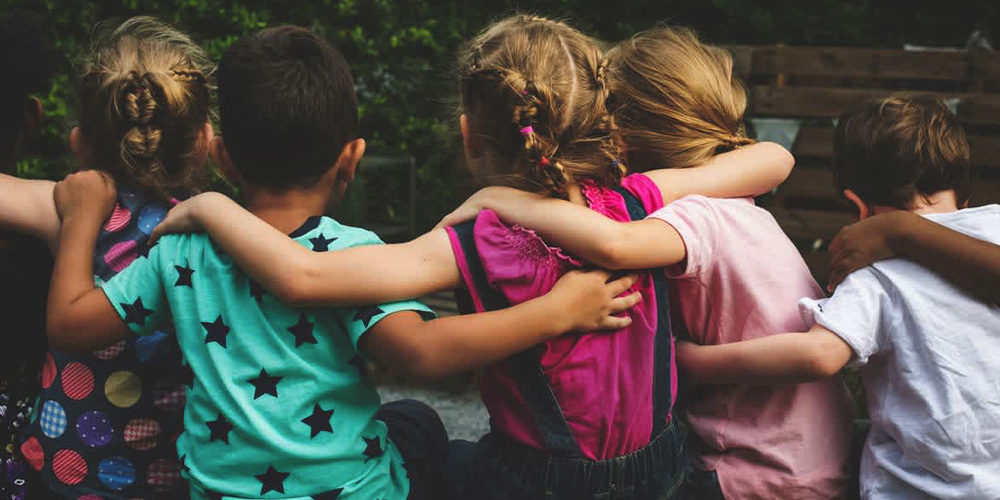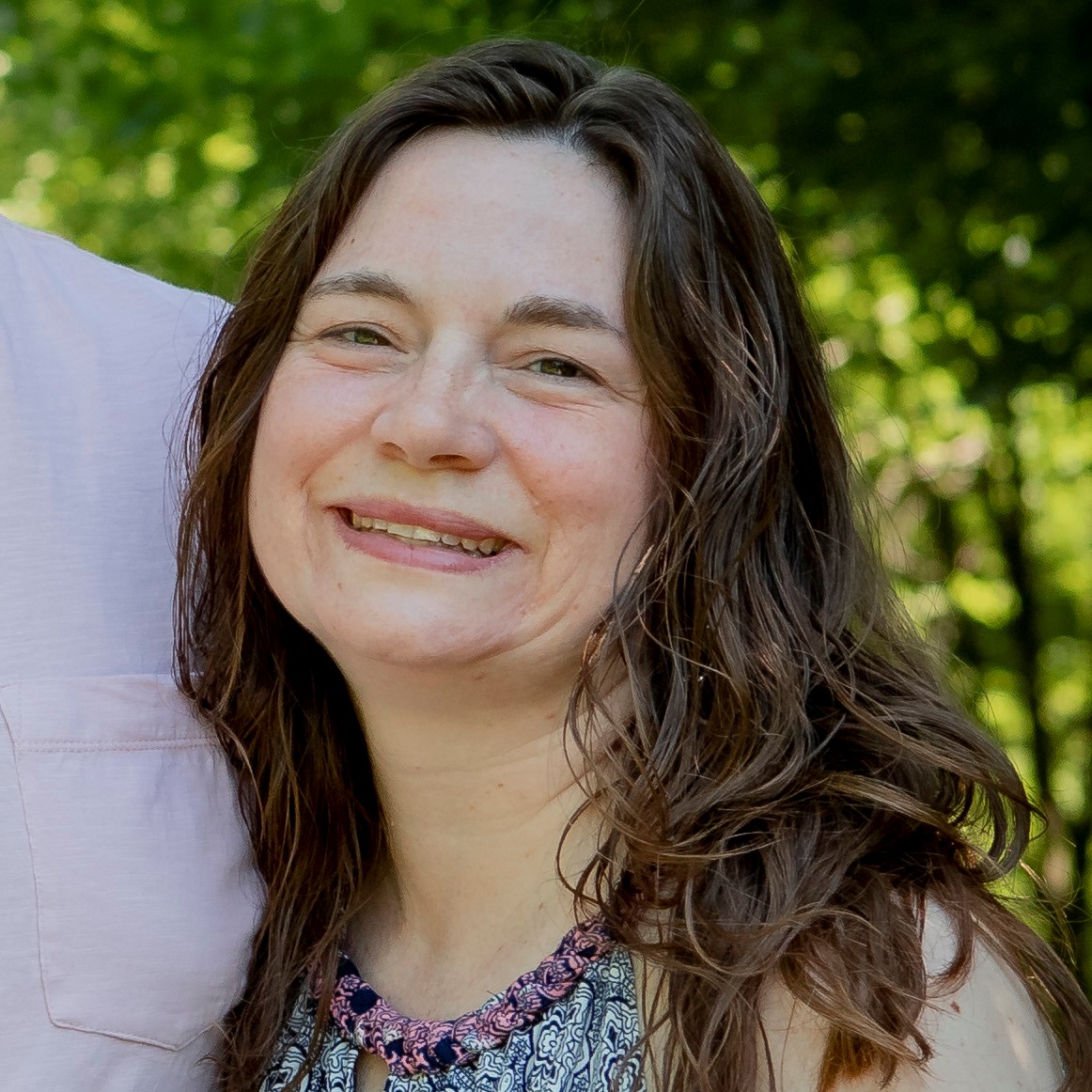 |
We can’t all raise our children in New York City like Tim and Amanda Bourman or serve as foster parents for a diverse group of children like Brenda and Steven Wagenknecht. Yet their experiences provide a guide for us on how to raise children who value all people. Read their stories and be encouraged again to look for opportunities to instill a Christlike love for all people into the children in your life.
— Nicole Balza

“AFTER THIS I looked, and there before me was a great multitude that no one could count, from every nation, tribe, people and language, standing before the throne and before the Lamb. They were wearing white robes and were holding palm branches in their hands” (Revelation 7:9).
God clearly describes heaven as filled with people of every race, nation, and language. This verse has guided our parenting journey. Because God clearly values all people—enough to send his own Son for the world—so we model and teach this to our children. We thank God for the many opportunities he provided to teach our children to value others and, ultimately, to rejoice in the diversity in his creation. Traveling and living in cross-cultural areas, foster care and adoption, as well as having friends from around the globe provided authentic settings for us and our children to learn about people from different races, nations, and languages.
Unconditional acceptance
Our pudgy-cheeked three-year-old, anxious to get at his day, was our 6:00 a.m. wake-up call every morning. One morning stands out, wonderfully different because of his excited grin of pure joy! He knew I had returned home late the evening before with his baby sister. I won’t forget his dimpled, beaming smile. He looked at me. Then he looked at the burrito-wrapped bundle. He looked at my husband. Seeing his sister’s hands peeking out of the footprint-patterned hospital blanket, he asked, “Mom, is this my new sister? Can I see her?” I smiled and assured him that his sister was finally home. When he pulled back the blankets, his eyes widened and his smile grew larger until he had a full view of his baby sister. His simple words revealed just how welcome she would be in our family. Gently caressing her dimpled cheeks, he exclaimed, “Oh, Mommy! She is black! She is SO beautiful!”
“Yes! She is black! Yes! She is so beautiful!” I responded, watching the miraculous connection of unconditional acceptance blossom between two children who had no biological connection, yet, were fully siblings.
Opportunities to learn
We called ourselves a United Nations family as people noticed our unique family that God assembled through foster care and adoption. Our children’s ethnicities include multiple skin tones, leading them to describe themselves as chocolate, vanilla, caramel, and peanut butter. We tried to give our children opportunities to learn about their native culture and heritage through food exploration, travel, and even staying in touch with biological family.
God clearly describes heaven as filled with people of every race, nation, and language.
Our various “home” locations were also blessings: Latin America, the Pacific Northwest, between Indian Reservations in Arizona, and near the Mexican border with Texas. As guests in different cultures, we enjoyed the taste of new foods. Celebrating different customs helped us to learn different histories and respect perspectives.
Even beyond their biological ethnicity, we embraced cross-cultural experiences wherever our home was located. Some were surprising, including Vietnamese culture in Idaho and a French-Canadian friend in South Texas. Patience and adaptability were important as we found diversity in our church, workplace, and community. It took some work searching, but often we found people from all over the world right in our neighborhood and congregation.
Diverse experiences gave our children opportunities to understand varied perspectives, enjoy different customs, and develop empathy for fellow humans. We are grateful for experiences where our children learned to value all the people whom we look forward to joining in heaven’s eternity of joyful worship to our Lord! What a joy that will be—united with all believers in Christ around the heavenly throne!
 Brenda Wagenknecht
Brenda Wagenknecht
BEFORE I GIVE my best answer to this month’s question, I’ll share my own family situation.
My wife, Amanda, and I have three daughters, Tayley (10), Brooke (8), and Felicity (5). They attend PS/IS 49 in New York City. I have many stories from our years in the public schools. Our daughters have had opportunities in NYC public schools that would not be found in other places. For example, Tayley spoke Spanish perfectly by the time she was in first grade because of her dual-language program. At the same time, as a family, we have had to face difficult challenges to our faith. We have had, on occasion, very difficult discussions with administrations about issues ranging from Hinduism to sexuality. This is all to say that Amanda and I have thought about this question constantly.
We want our daughters to know that God does not show favoritism.
I cannot say that I have a final answer that would be helpful for all readers of FIC. However, I can share the way that I have answered this question so far. We have done three things to teach our kids to value all people.
First, I am dogged and daily about pushing this into my daughters’ hearts. To me, the public schools feel a little bit like a black hole. I send them into the school and then they come out. I have no idea what happened inside. Sometimes, the girls will give me a glimpse. For me, this means that before I send them in, I always, always pray with them. Sometimes, we pray on the sidewalk together as people just walk by. I ask God to keep them safe, to keep them loving, and to keep them in the faith. Then, as they walk into the building, I say, “Remember that you are Christians.” They know exactly what I mean when I say it. To put it simply, repetition is a key to what Amanda and I are doing. I cannot say with scientific evidence that it is working, but I do trust the power of prayer and the power of the Word.
Second, Amanda and I do our best to model how we value people every single day. We strive to treat every single person that we meet with the same dignity and respect that God has shown to us in Christ. At times, we even talk to our daughters about why we spoke to someone the way that we did. We tell them why we have learned other languages to be able to communicate with others in their language. And, perhaps, most importantly, we want them to understand that God calls us to empathize with all people while not always agreeing with the choices that they make.
Finally, at the heart of our approach, is the heart of our God. He valued all people with the infinite price of the blood of his own Son Jesus. We want our daughters to know that God does not show favoritism. He values everyone the same. He loves Tayley, Brooke, Felicity, Amanda, and I with his whole heart. He has valued us so. How could we do any differently? Our daughters know that love from God. So do we.
 Tim Bourman
Tim Bourman
Authors: Multiple authors
Volume 109, Number 02
Issue: February 2022
- Parent conversations: How can parents and kids manage stress?
- Parent conversations: What do your prayers for your children include?
- Parent conversations: How do we resist making our parenting law-based?
- Parent conversations: What Bible passages do you turn to most as a parent?
- Parent conversations: How can we help kids develop positive, healthy habits?
- Parent conversations: What tactics do you use to encourage children to tackle difficult tasks?
- Parent conversations: How can we model good listening skills for our kids?
- Parent conversations: How do we help our kids move on from mistakes?
- Parent conversations: How can we instill gratitude in our children?
- Parent conversations: How can parents find the balance between being too restrictive and too permissive?
- Parent conversations: How can we teach kids to be good friends?
- Parent conversations: What life skills will help young people as they transition to adulthood?
- Parent conversations: How do we discuss death with our children?
- Parent conversations: What does it look like for a father to be a strong Christian leader?
- Parent conversations: How can we help young adults stay engaged in the church?
- Parent conversations: What do parents need to know about video games?
- Parent conversations: How do parents not let worry get the best of them?
- Parent conversations: How do we teach our kids to value all people?
- Parent conversations: When parenting philosophies differ
- Parent conversations: How can we help today’s overwhelmed teens?
- Parent conversations: How can parents maintain a healthy marriage?
- Parent conversations: You might be a Lutheran parent if . . .
- Parent conversations: Parenting post–high school: What is a parent’s role?
- Parent conversations: How can families use the hymnal in their worship life at home?
- Parent conversations: What should Christian parents teach their children about gender?
- Parent conversations: What is vocation? How does it apply to parenting?
- Parent conversations: Why do siblings fight? How should I react when they are fighting?
- Parent conversations: How do we teach children resilience?
- Parent conversations: How do I approach vaccines as a Christian parent?
- Parent conversations: How can I explain the Sixth Commandment to a young child?
- Parent conversations: How can I help my child have an optimistic outlook?
- Parent conversations: What if we can’t follow our Christmas traditions this year?
- Parent conversations: What are ways to foster a rich prayer life in children?
- Parent conversations: How can I let the gospel shine as I parent?
- Parent conversations: How should I handle a child’s separation anxiety?
- Parent conversations: How should families prepare to go back to school?
- Parent conversations: How does a teen’s brain work?
- Parent conversations: How much should I monitor my child online?
- Parent conversations: How can parents reassure children during an uncertain time?
- Parent conversations: How can I stay calm when my child is out of control?
- Parent conversations: Should I give something up for Lent?
- Parent conversations: How can I keep my child engaged in attending church?
- Parent conversations: How can we help a stressed-out kid?
- Parent conversations: How can we nurture a proper view of “stuff”?
- Parent conversations: How involved should parents be in a child’s homework?
- Heart to heart: Parent conversations: Are we modeling kindness for our children?
- Heart to heart: Parent conversations: What’s the best parenting advice you’ve received or given?
- Heart to heart: Parent conversations: How should we handle it when people undermine our parenting decisions?
- Parent conversations: How can we prepare children for summer camp?
- Heart to heart: Parent conversations: What’s a parent’s role as a child dates?
- Heart to heart: Parent conversations: How do parents find contentment?
- Heart to heart: Parent conversations: How can we help a family with a sick parent?
- Heart to heart: Parent conversations: How can parents model healthy cell phone use?
- Parent conversations: How can we protect kids without scaring them?
- Parent conversations: What does your family’s bedtime routine look like?
- Parent conversations: What do I need to consider before I give my child a cell phone?
- Parent conversations: How can we teach gentleness and strength at the same time?
- Parent conversations: What should we do when our children grow silent?
- Parent conversations: What should we teach our children about the Reformation?
- Parent conversations: Do we want our children to be leaders or followers?
- Parent conversations: How does a parent’s role change over time?
- Parent conversations: How should I handle a disagreement with my child’s teacher?
- Parent conversations: What are the building blocks of a strong parent/child relationship?
- Parent conversations: What is our goal as parents?
- Parent conversations: What Christmas traditions do you cherish in your family?
- Parent conversations: How can we raise a generation that cherishes life?
- Parent conversations: What are the best Bible story books for family devotions?
- Parent conversations: Why should children obey their parents?








